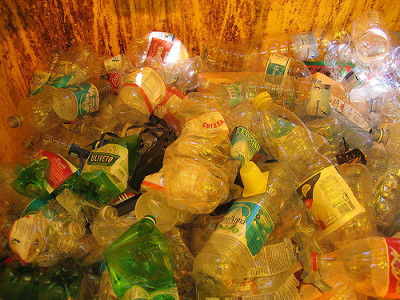Technology to make roads with disposable masks is developed

Due to the pandemic of the new coronavirus infection (COVID-19), 6.88 billion disposable masks are being discarded every day worldwide, which is developing into a serious garbage problem. New research results have shown that finely crushed disposable masks and demolition building debris can be used as road materials to recycle large amounts of resources without landfilling.
Repurposing of COVID-19 single-use face masks for pavements base / subbase --ScienceDirect
Recycling face masks into roads to tackle COVID-generated waste --RMIT University
https://www.rmit.edu.au/news/all-news/2021/feb/recycling-face-masks-into-roads-to-tackle-covid-generated-waste
Due to the influence of COVID-19, the use of personal protective equipment (PPE) represented by disposable masks is also increasing rapidly, and '129 billion disposable masks and 65 billion gloves are discarded every month worldwide.' The calculation result is reported. The data on which this calculation was based includes the period before the governments of each country mandated the wearing of masks, so Mohammad Saverian, a civil engineer at RMIT University in Australia, reiterated. As a result of a trial calculation, the result was that 'the number of masks that are thrown away worldwide is 6.88 billion pieces a day, and the weight is about 206,470 tons.'
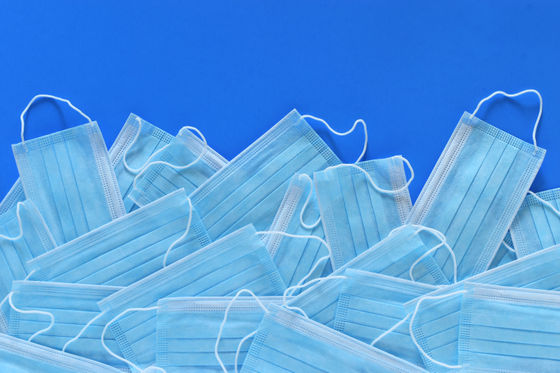
Discarded PPE is difficult to handle because it is likely to be contaminated with the new coronavirus (SARS-CoV-2), and because it is not made of biodegradable plastic, it will not decompose naturally and return to the soil. .. Therefore, discarded disposable masks are generally incinerated or sent to landfills.
Therefore, the research team of Saverian et al. Conducted an experiment to examine the suitability as a road paving material by mixing recycled concrete aggregate (RCA) with a shredded disposable mask. RCA is a building material consisting of concrete pieces generated when a building is demolished. It is said that about half of the waste generated every year in the world is the waste generated in connection with the construction, renovation and demolition of buildings, and in Australia alone, about 3.15 million tons of RCA are not used every year. It is said that it has been left unattended.
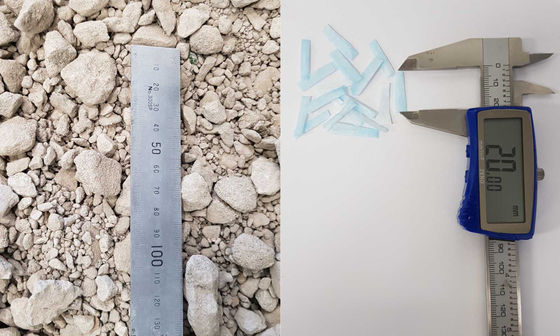
Pavement materials made by mixing RCA and disposable masks in a weight ratio of 99: 1 show excellent results in tests such as
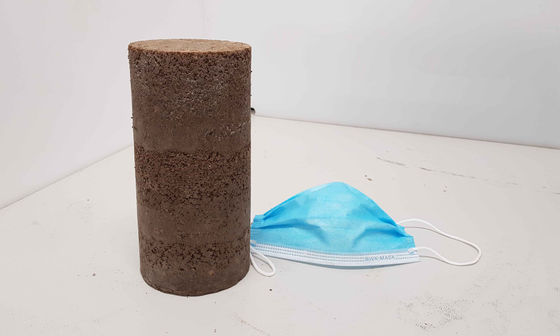
When it comes to reusing used disposable masks, there are concerns about contamination by viruses, but the research team said, 'The disposable mask is sprayed with a disinfectant solution and heated in an 800W microwave oven, which is also found in ordinary households. ], It is possible to kill 99.9% of the new corona virus (SARS-CoV-2). ' In addition, when actually using a pavement material made from a disposable mask, it is also being considered to 'leave the pavement material outdoors for a week to inactivate the virus' in order to avoid the risk of infection. That is.
A common surgical mask was used for the samples made by Saverian et al., But the research team said, 'Experiments have shown that the polypropylene layer used in disposable masks enhances the strength of the pavement material. Given that most PPEs are made of polypropylene or polyvinyl chloride, it is possible that PPEs other than disposable masks can also be used as paving materials. '
According to the research team's estimation, it is possible to reuse about 3 million masks and reduce the amount of waste to be landed by 93 tons just by paving a two-lane road for 1 km with paving material containing disposable masks. You can do it.
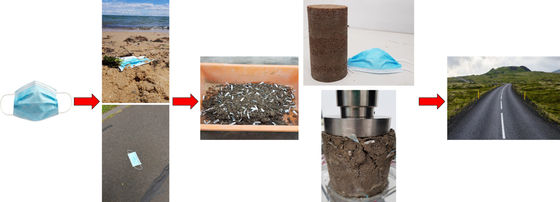
'I was surprised that making pavement materials with disposable masks would not be a problem for road materials, but rather would have engineering benefits,' Saverian said. 'This study was triggered by seeing a littered disposable mask falling on the street,' said co-author Jie Lee of the treatise. 'If the littered mask was properly discarded. Even so, it is Sekiyama that they are incinerated or landfilled. However, if the waste problem associated with COVID-19 is adopted by the idea of a cyclical economy, it is possible to find a smart and sustainable solution. You should be able to do it. '
Related Posts:
in Note, Posted by log1l_ks
